UNIFIL’s Looming End: Why the UN Won't Let it Happen
The UN’s $9 Billion Failure That Shields Hezbollah
The UN Security Council is about to vote on renewing the mandate for UNIFIL, the so-called “peacekeeping” mission in southern Lebanon. The U.S. has branded it an abject failure and wants it shut down. The news broke that the UN Security Council is expected to finally set an end date for UNIFIL. For decades, UNIFIL has failed in its stated mission to keep peace in southern Lebanon. In practice, it has become little more than a buffer that shields Hezbollah’s military buildup, while turning a blind eye to violations of UN resolutions.
On paper, this should be a cause for celebration. But the devil is in the details. Thanks to lobbying by French President Emmanuel Macron and U.S. Ambassador to Turkey and Special Envoy for Syria Tom Barrack, the end date isn’t imminent. Instead, the Security Council has chosen 2027 as the deadline. That gives two more years of life support to an organization that has proven time and again that it cannot — and will not — do its job.

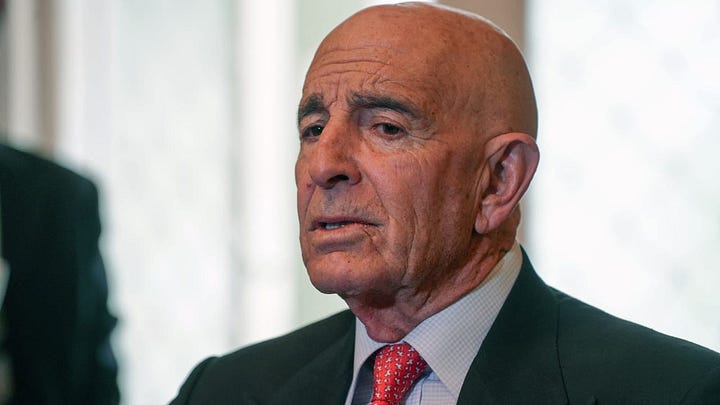
This delay is no accident. UN bureaucracies and those that prop them up operate on the assumption that once created, a UN mission must never die. Failure is not a reason for closure — it is a reason for more mandates, more reports, more money. The idea of shutting down a mission terrifies those who rely on the illusion of UN relevance. If UNIFIL can be closed, then perhaps other bloated, ineffective UN alphabet soup could be shut down as well. And that is a precedent the system cannot allow.
UNIFIL was created in 1978 after Israel’s incursion into southern Lebanon, originally to monitor Israeli withdrawal and prevent armed groups from operating along the border. After the 2006 Israel-Hezbollah war, the UN strengthened its mandate under Resolution 1701: disarm Hezbollah, prevent militia entrenchment, and maintain stability.
The world has spent over $9 billion on UNIFIL between 2006-2023, it was meant to stop Hezbollah from starting another war with Israel. Instead, UNIFIL became a shield for Hezbollah. Hezbollah, with the help of the Islamic Republic of Iran, built tunnels, bunkers, and rocket depots directly under UNIFIL’s watch.
UNIFIL often hides behind diplomatic language and procedural technicalities to justify its inaction or limited enforcement in sensitive areas. By citing “respect for private property” or emphasizing the need for prior coordination with the Lebanese authorities, UNIFIL avoids confronting Hezbollah’s fortified positions or inspecting suspected weapon storage sites. UNIFIL commented on the IDF finding Hezbollah’s terror tunnels right next to UNIFIL bases in southern Lebanon. They stated they knew about the tunnels but aren’t allowed to conduct searches on “private territory.” Completely contradicting their own instructions, indicating that they can enter private property if they have credible evidence of violations of resolution 1701.
Under pressure, UNIFIL has confirmed multiple times the existence of tunnel from Lebanon into Israeli territory. In 2019, UNIFIL confirmed the existence of six tunnels in South Lebanon, two crossing into Israeli territory.
UNIFIL troops have been implicated in sexual misconduct and exploitation, particularly targeting local women and vulnerable populations.
Reports indicate that Hezbollah paid UNIFIL personnel for access to observation posts and cameras near the border.
A former U.N. soldier in Southern Lebanon told the Danish tabloid B.T. on December 2024, that during his service there 10 years ago, “we were totally subject to Hezbollah.”
Tunnels designed for an October 7-style massacre, were discovered only yards from a UNIFIL observation post.
For decades, UNIFIL did not prevent rearmament or attacks—it facilitated them.
Despite UNIFIL’s presence, Hezbollah systematically built one of the most advanced non-state militaries in the world. Tunnels were dug right under UNIFIL’s nose. Hezbollah launched thousands of rockets from sites adjacent to UNIFIL bases, even hitting UN posts with misfired rounds. UNIFIL referred to these attacks ambiguously as by “armed elements” rather than naming Hezbollah.
When the IDF conducted ground raids in southern Lebanon, the scale of Hezbollah’s entrenchment around UNIFIL bases was shocking. Yet UNIFIL refused to evacuate posts or confront Hezbollah, effectively serving as human shields. Israel tried to protect UNIFIL, only to be condemned.
Israel, implored UNIFIL to leave their positions for their own safety, but these appeals fell on deaf ears. It was also the IDF’s policy during the war always to warn UNIFIL whenever Israel operated in their vicinity so they had the chance to move out of harm’s way. Instead of praising Israel, however, for trying to protect UNIFIL, world leaders condemned it.
When Hamas attacked southern Israel on October 7, Hezbollah quickly mobilized the arsenal it had built under UNIFIL’s watch. Thousands of missiles were fired at Israel from southern Lebanon, including sites next to UN bases. UNIFIL’s response? Silence. The peacekeepers did not identify Hezbollah in their press statements and continued to act as human shields.
UNIFIL’s failures are not isolated. They reflect a systemic problem across UN peacekeeping operations, with some of the examples:
Srebrenica, Bosnia (1995): Dutch UN peacekeepers failed to prevent the massacre of 8,000 Bosniak men and boys, despite the town being declared a UN “safe zone,” it became a slaughter zone under the watch of the UN.
Rwanda (1994): UNAMIR peacekeepers were overwhelmed and under-resourced, failing to protect civilians during the genocide that killed an estimated 800,000 people.
Congo (DRC): MONUC and MONUSCO personnel were repeatedly implicated in sexual abuse, exploitation, bribery, and collusion with local militias.
Haiti (2004–present): UN peacekeepers have been linked to cholera outbreaks, sexual abuse, and corruption, undermining trust with local communities.
Darfur, Sudan: UNAMID peacekeepers were accused of failing to protect civilians from attacks by Janjaweed militias, while some forces were themselves involved in abuse.
Liberia: UNMIL peacekeepers faced accusations of sexual exploitation and abuse, including transactions with minors.
Bosnia & Herzegovina (post-Srebrenica): Some peacekeepers were involved in black-market arms and equipment sales.
Cambodia (UNTAC, 1992–1993): Reports of sexual abuse and exploitation of women and children by UN personnel.
Sierra Leone: UNAMSIL personnel faced multiple accusations of bribery, sexual misconduct, and turning a blind eye to rebel activities.
The UN bureaucracy prioritizes its survival over actual results. UNIFIL epitomizes this: billions spent, zero enforcement, billions of dollars of armaments allowed to flourish, and dozens of scandals ignored. UNIFIL’s mandated expiration is now a political compromise—delayed to 2027. The UN does not want to admit that a peacekeeping mission failed so completely. Closing UNIFIL would force the world to ask uncomfortable questions. The UN survives by perpetuating illusions. Ending UNIFIL threatens that. It would prove that the UN can be dismantled.
UNIFIL had one job: prevent Hezbollah from rearming and escalating conflict in southern Lebanon. It failed spectacularly. It became a shield for Hezbollah, allowed the construction of tunnels and rocket depots, accepted bribes, covered for drug smuggling, and turned a blind eye to sexual abuse by its peacekeepers.
If UNIFIL finally ends, it will be a terrifying precedent. The UN survives by perpetuating illusions. Ending UNIFIL threatens that. It would prove that failed UN institutions can and should be dismantled.


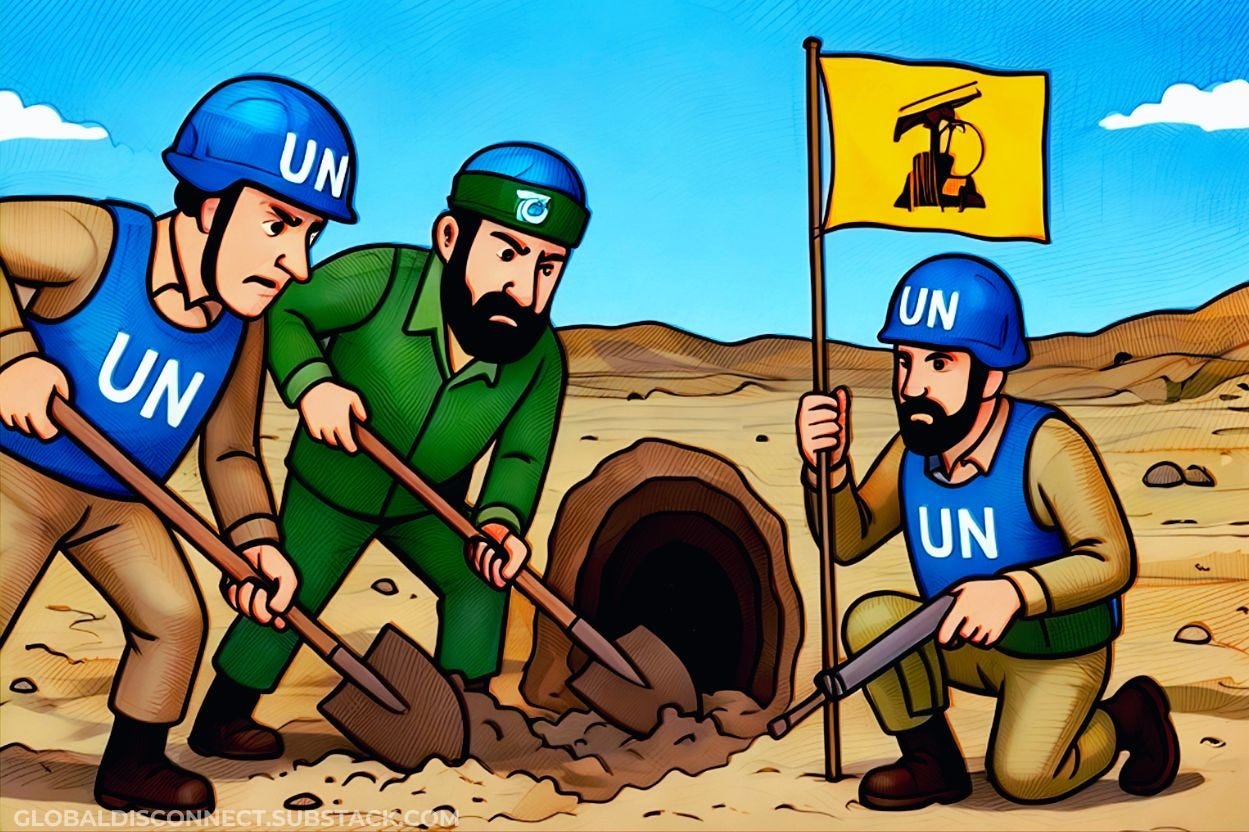
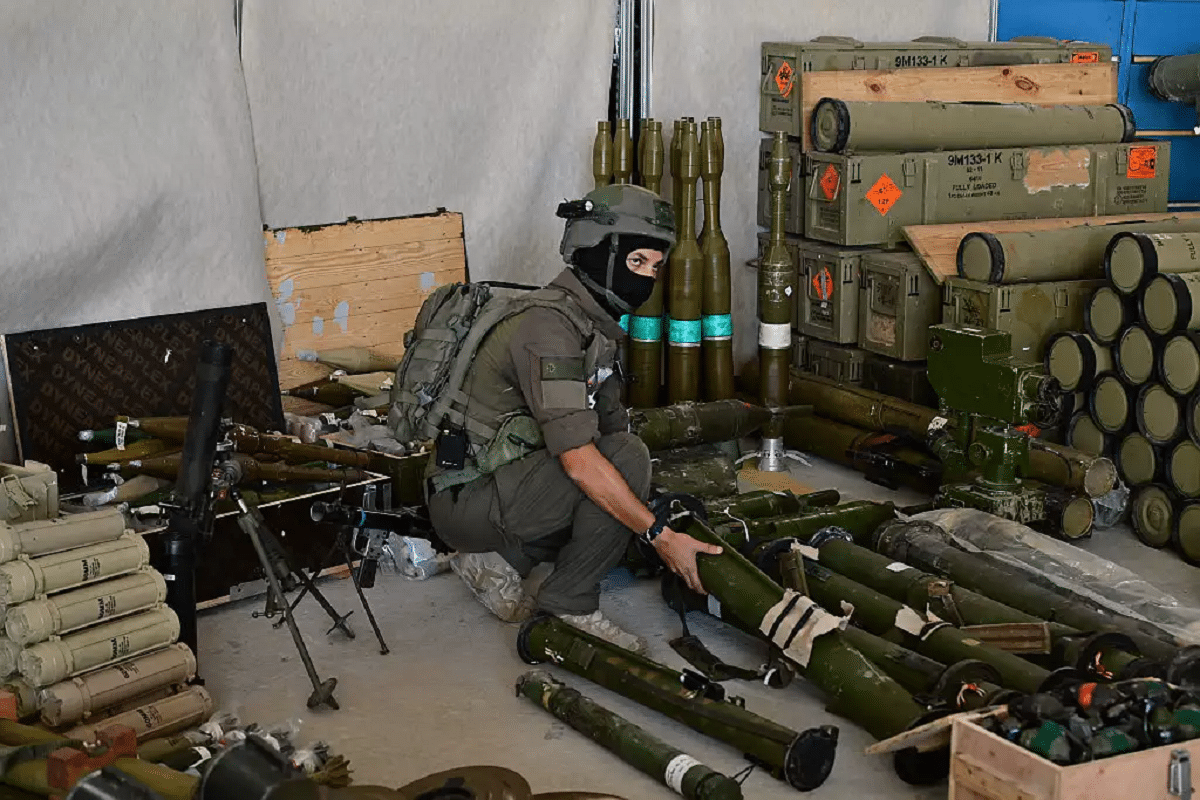
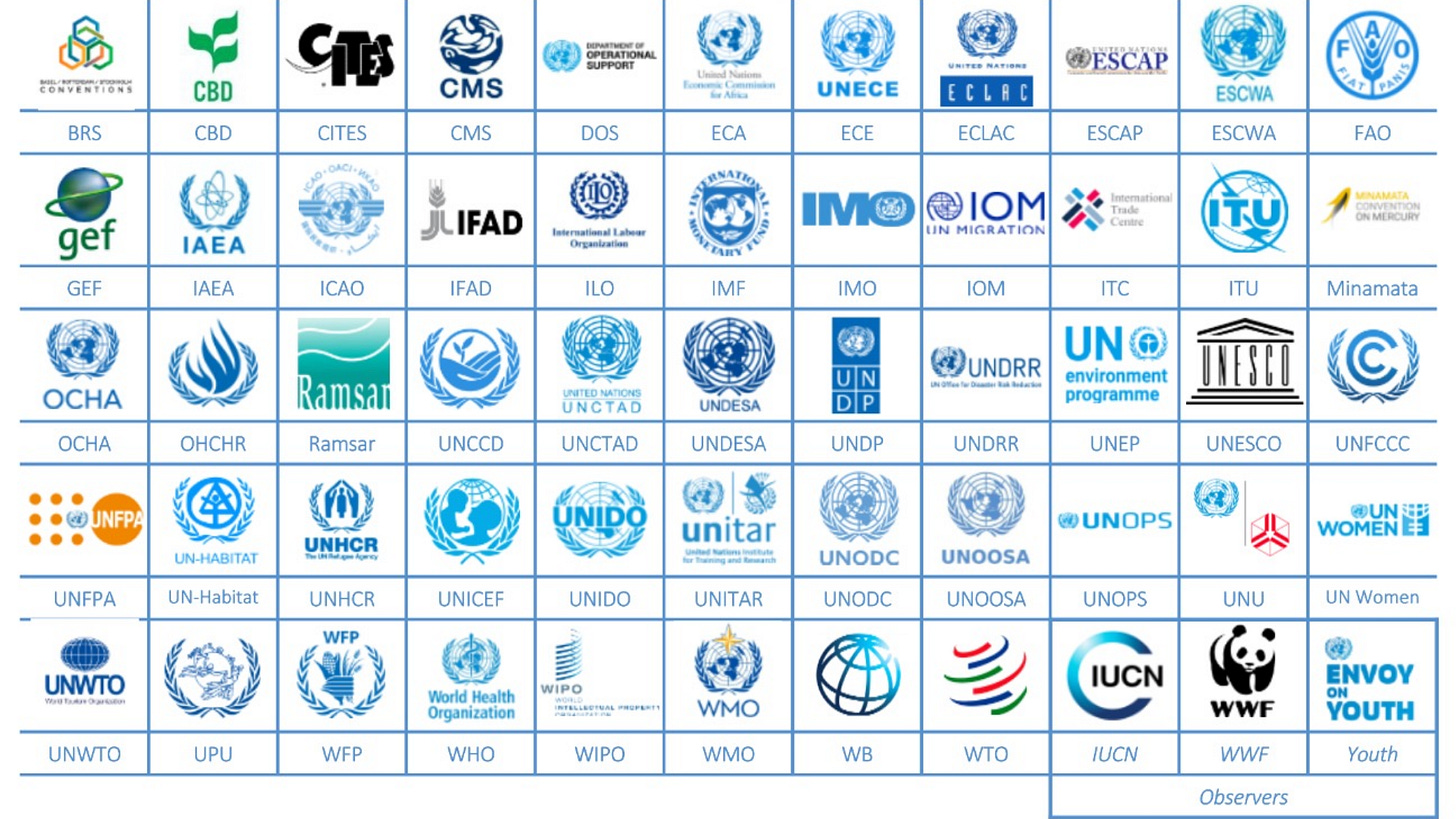
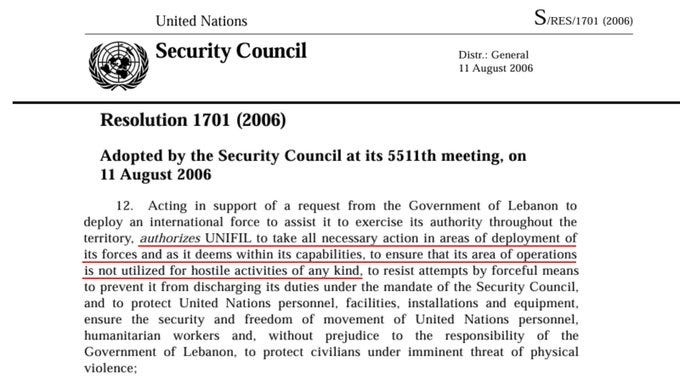
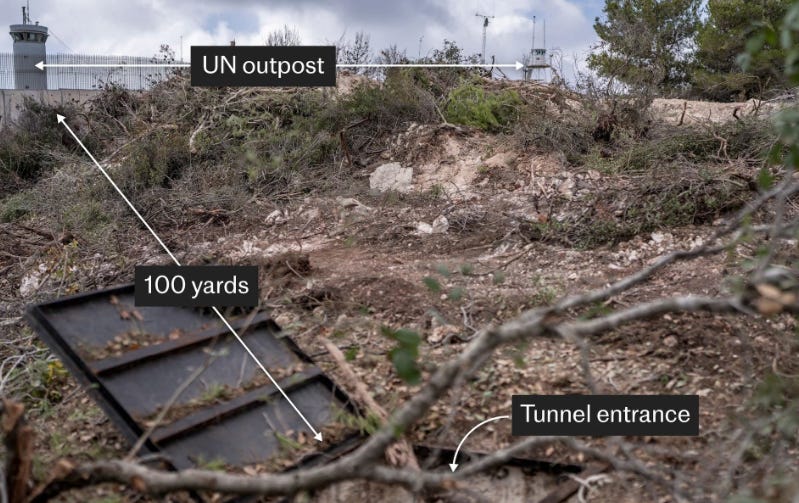
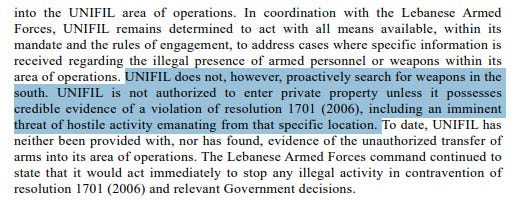
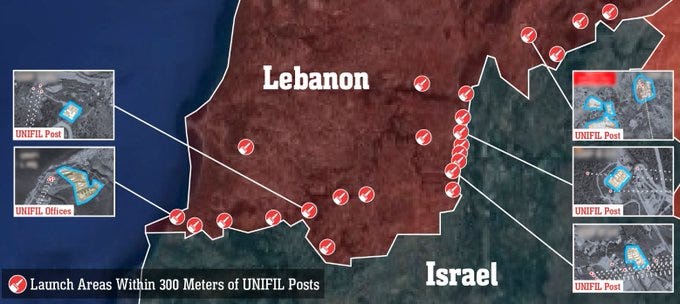
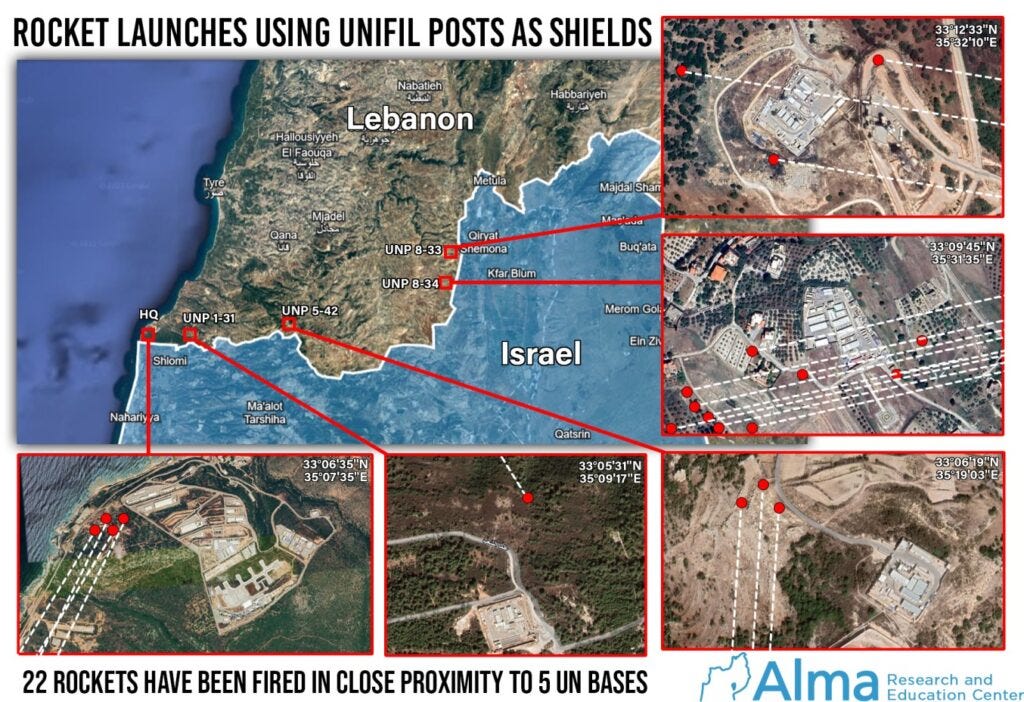
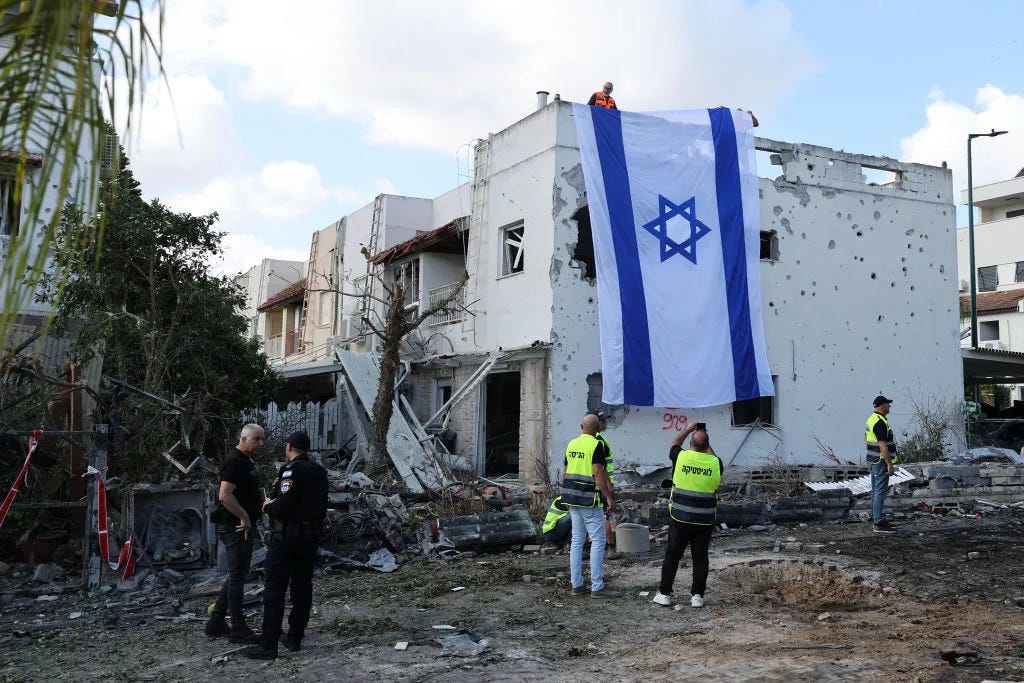
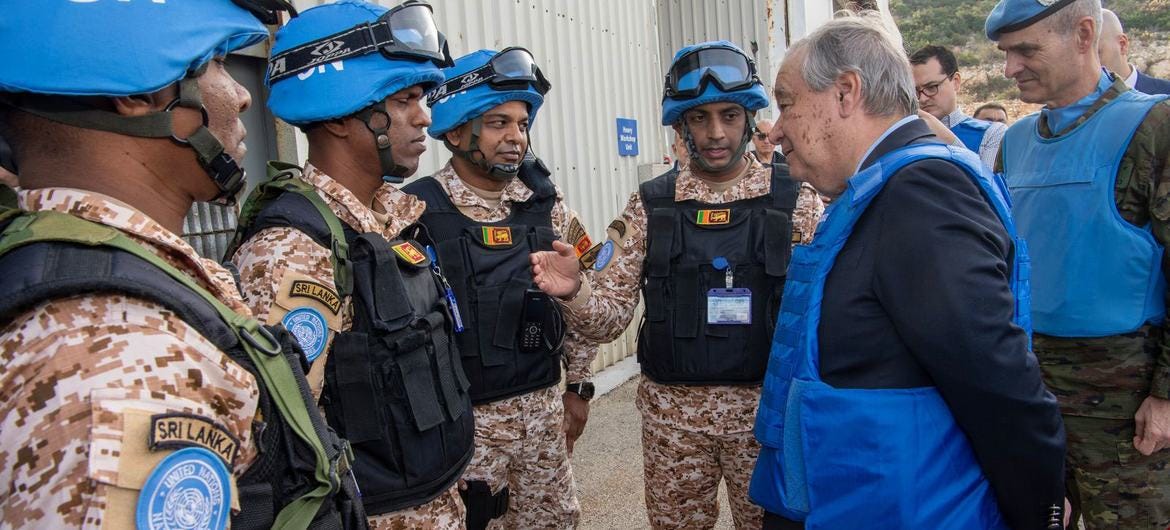
Tom Barrack is turning out to be as bad as Amos Hochstein.